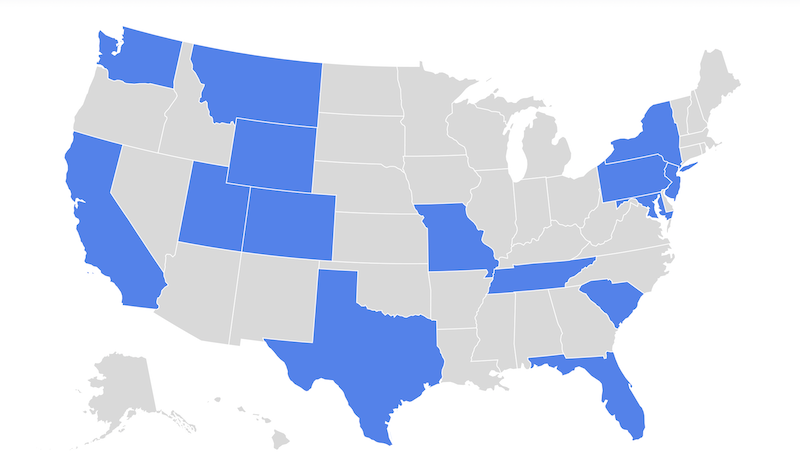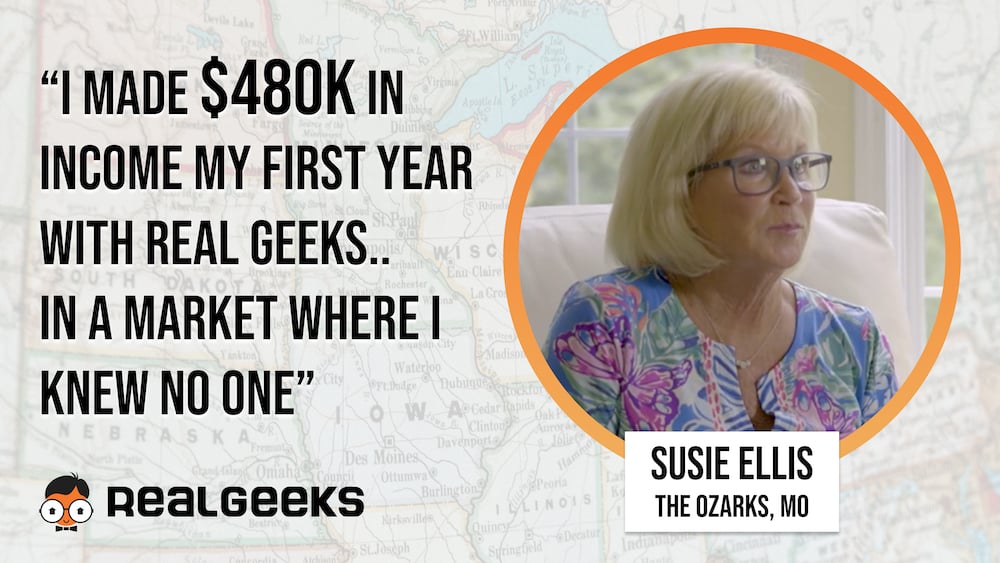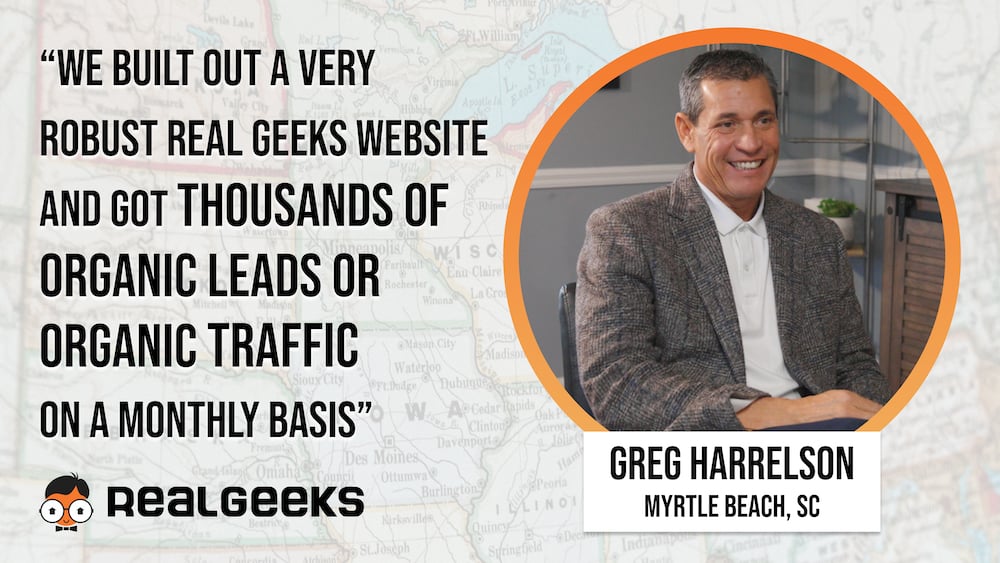Part I: A Real Estate Agent's Guide Post-NAR Lawsuit

Welcome to a very special edition of Keeping it Real. This week, Todd Tramonte takes on the NAR lawsuit, breaking down all the major changes agents need to know.
This is part one of our four-part series on this topic. Expect to learn the concrete ways in which the NAR settlement will change our activities as agents and realtors, what Todd would be doing if he was starting from scratch in this industry, and who our biggest enemy really is in real estate.
The 3 Key Changes of the Settlement
Let's jump straight into it: what has changed as a result of the NAR settlement?
- We can't offer buyer–agent compensation inside the MLS anymore.
This will probably lead to a massive communication burden, at least for a while.
Now, we believe this is going to come with plenty of opportunities, but let's acknowledge something right away: it's going to be annoying at first.
- The NAR is going to be writing a massive check (upwards of $400M) over the next four years.
And while Todd admits himself that he often complains about the NAR, he also believes that while they've lost this battle for us as agents, they might win the war going forward, in the ways the settlement is structured.
We'll just have to wait and see.
And now, for the biggest change coming our way:
- If you're going to work with a buyer, you need them to actually hire you.
That's it. Doesn't sound so crazy looking at it this way, does it?
And yet, it's exactly what this change means. We're going to need to have Buyer Agency Agreements signed right off the bat.
"Mind you, on our team, we've been doing this for years." Todd shares.
And in some states like Texas, many agents are used to signing Buyer Agency Agreements early in the process. So if this is your case, you're already way ahead of everyone else.
And if you haven't been doing this for 18 years like Todd has, then know this: the only skill that's required here is to be able to provide as much value as you can, right away.
You know all those visually stunning presentations, and smooth lines, and contacts, and stats that you share with buyers when you feel are closer to a transaction?
Well, now you're going to use all of these persuasion tools in your first meeting with them.
That's it. Bring as much value as you can right away, charm them in your very first interaction, and claim them as your client.
Not so bad, is it?
Starting Over in A Post–NAR Lawsuit World
If Todd was to start over as a real estate agent today, post-NAR settlement, this is exactly what he would do:
First, he would put his pride aside.
When Todd was just starting out, his pride got in the way of learning, and it definitely got in the way of working with other people.
And this is especially important today. If you've gotten used to adding buyer–agent compensations into the MLS directly, and if you're not used to signing a Buyer Agency agreement right away, then it doesn't matter how long you've been in the industry for. You're going to be humbled by these changes. And you're going to have to learn some new tricks.
Second, he would focus on value.
For a while, at the beginning of his career, Todd's model was a cheap offering and low added value. He would flip that on its head if he was starting over today.
While yes, buyers are always going to be sensitive to price, when they're making a decision as important as purchasing a home, they're going to primarily be looking for an agent that's going to find them the best place, at the best rate.
How do you show them you're that agent? Through your expertise, the quality of your seller database, your market insights, your past success rate, your negotiation abilities, etcetera.
All of these are signs of your value as an agent. And it's what you need to start explaining from your very first meeting, from now on.
And the golden rule of communicating value? Don't tell – show.
- when they ask about a neighborhood, casually drop some facts about the schools / parks / shops
- when they share with you their budget, mention some of the sellers you know in that price range
- when they ask about a specific property, offer them to go see it right away
But you know all this. The only thing that's changed is that now, you need to bring out the charm from the very beginning.
Your Real Enemy in Real Estate
Back in 2011, Todd mockingly wrote a whitepaper about the commoditization of real estate agents.
The whole point of this whitepaper is that behaving like every other agent is what's really stopping you from growing your business any further.
Here's the thing: many agents believe our industry is about selling houses. But your business is not selling a product, it's selling a professional service.
You've earned a client when you've earned their trust.
In other words, you've earned a client when you've sold them on you, not on a property.
This will be especially true now, that we'll have to earn the buyers much earlier in the buying process than before.
And yet – all agents look the same, behave the same, and charge the same. And they've been doing so for years.
We've commoditized ourselves. We've been teaching the clients to see us no different than the world sees other commodities, like tin or copper.
The price is the same, because the product is the same, no matter where you are in the world or who you buy it from.
Why is this a problem? For starters, because when the price is the same, and the value is perceived the same, then we've made customers believe that hiring an agent is nothing but a necessary (or unnecessary!) evil. Just a part of the process they begrudgingly have to follow, and pay for.
This doesn't happen in other industries where professional services are sold, by the way.
A world-class attorney might charge $1000 an hour, while a brand new attorney might struggle to get clients at $50 an hour.
Customers are happy to pay $1000 because they see the value of this particular attorney over the others.
So, yes. You can be mad at the NAR. You can be mad at the lawyers involved in the settlement.
But the truth is, in residential real estate, the agent is the real enemy of the agent.
Going back to the lawyer's example: why is it that our industry cannot behave the same way?
For starters, because the barrier of entry is so low in real estate, most agents are not committed to running a successful business. Heck, this is often just a side gig for many of them.
And second, because out of 5 agents a buyer will speak with, four of them are going to do a terrible job. Let's not kid ourselves here. The rumors that our industry is full of posers is absolutely true.
What Todd wants you to think about today, and what we want to leave you with, is that all of this can be a massive opportunity, if you choose to take it.
The fact that most agents are terrible means that you have a lot of room to prove your value to customers. The fact that everyone behaves the same means that you can differentiate yourself.
And, the fact that the person who delivers the most value first will now be the person to win that transaction, means that if you are one of the few good agents, your business is about to grow exponentially.
Real Geeks is a highly efficient and effective lead generation and conversion solution for cultivating, capturing, and managing leads at any stage of the home buying or selling process.
Drive traffic, capture leads, nurture opportunities, and close more transactions with a robust CRM, fully integrated custom IDX website, and marketing solutions for agents and teams of any size.
Real Geeks is one of the best lead generation and management platforms available, but don't just take our word for it – hear from customers loving their experience with Real Geeks →






/Blog/Thumbnail%20-%20Emerging%20Brokers%20Time%20to%20Build%20Your%20Engine.png)
/Blog/Thumbnail%20-%20Automation%20That%20Frees%20Agents%20to%20Do%20What%20They%20Signed%20Up%20For.png)
/Blog/Thumbnail%20-%20Choice%2c%20Freedom%2c%20and%20the%20Power%20of%20a%20Platform.png)